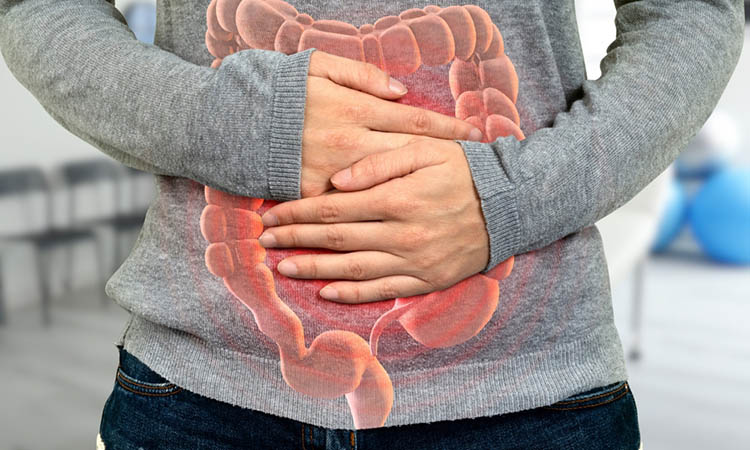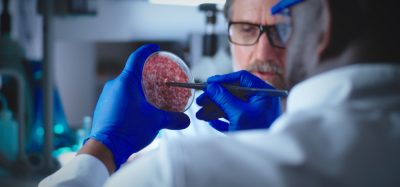How food antigens can help prevent tumour growth in the small intestine
- Like
- Digg
- Del
- Tumblr
- VKontakte
- Buffer
- Love This
- Odnoklassniki
- Meneame
- Blogger
- Amazon
- Yahoo Mail
- Gmail
- AOL
- Newsvine
- HackerNews
- Evernote
- MySpace
- Mail.ru
- Viadeo
- Line
- Comments
- Yummly
- SMS
- Viber
- Telegram
- Subscribe
- Skype
- Facebook Messenger
- Kakao
- LiveJournal
- Yammer
- Edgar
- Fintel
- Mix
- Instapaper
- Copy Link
Posted: 18 September 2024 | Ben Cornwell | No comments yet
Researchers have uncovered that food antigens may play a crucial role in preventing tumour growth in the small intestine by activating the immune system. This discovery could have significant implications for dietary approaches in managing gastrointestinal conditions.


A new study led by researchers at the RIKEN Centre for Integrative Medical Sciences (IMS) in Japan has revealed that food antigens, including those found in milk proteins, may help suppress tumour formation in the small intestines. The research, published in Frontiers in Immunology, provides insight into how food proteins can stimulate the immune system in ways that could prevent the development of new tumours.
Food antigens are often viewed negatively due to their association with allergic reactions to foods such as peanuts, shellfish, eggs and milk. Even in the absence of allergies, food antigens are treated as foreign objects by the immune system. Hiroshi Ohno and his team had previously found that food antigens activate immune cells in the small intestines but not in the large intestines. This latest study combines their earlier work with findings about immune cells activated by gut bacteria, which are known to suppress tumours in the gut.
Testing tumour growth in specialised mice
To test whether food antigens could help prevent tumour growth, the team conducted experiments on mice with a genetic mutation in a tumour-suppression gene that causes them to develop intestinal tumours. This condition mimics familial adenomatous polyposis in humans, a disorder that increases the risk of both small and large intestinal tumours.
The initial experiment involved feeding the mice either a normal diet or an antigen-free diet. Results showed that mice fed normal food developed fewer tumours in the small intestines, while the number of large intestinal tumours remained unaffected.
The researchers then introduced a key antigen, albumin, found in meat, into the antigen-free diet, ensuring the protein levels matched those of the normal diet. Remarkably, the mice on this diet showed similar tumour suppression in the small intestine as those on a normal diet, indicating that the presence of food antigens, rather than nutritional content or any specific antigen, was responsible for this effect.
The study also revealed that the diets influenced the number of T cells, a type of immune cell, in the small intestines. Mice on an antigen-free diet had significantly fewer T cells compared to those on a normal or antigen-free diet supplemented with milk proteins. Additional experiments helped uncover the biological mechanisms behind this process.
Clinical implications for gastrointestinal disorders
These findings could have important clinical implications. Elemental diets, which contain simple amino acids rather than proteins, are sometimes used to treat severe gastrointestinal disorders like Crohn’s disease or irritable bowel syndrome (IBS).
However, Ohno cautions that such diets might pose a risk for individuals predisposed to small intestinal tumours, such as those with familial adenomatous polyposis. He commented, “small intestinal tumours are much rarer than those in the colon, but the risk is higher in cases of familial adenomatous polyposis, and therefore the clinical use of elemental diets to treat inflammatory bowel disease or other gastrointestinal conditions in these patients should be considered very carefully.”
Additionally, the study suggests that the use of elemental diets, sometimes adopted by healthy individuals seeking weight loss or relief from bloating, could carry unforeseen risks. The researchers advise that such diets should only be followed under medical supervision to avoid unintended consequences.
This breakthrough research highlights the importance of food antigens in maintaining a balanced immune response and protecting against certain cancers in the small intestines, paving the way for further studies into diet-related immune system regulation.
Related topics
Allergens, Health & Nutrition, Proteins & alternative proteins, Research & development, The consumer









